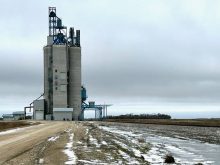The worst rail service in three years prompted shippers to propose amendments to toughen Bill C-52, the Fair Rail Freight Service Act, to help balance their relationship with the railways, says Wade Sobkowich, executive director of the Western Grain Elevator Association (WGEA).
“Service is very poor on both railroads,” he said in an interview March 22. “Overall the railways are delivering less than 50 per cent of the rail cars in accordance with their own service plans.”
Bill C-52 is supposed to compel the railways to reach service level agreements with shippers making it easier to resolve rail service complaints. But to do that the Coalition of Rail Shippers, which includes the WGEA, farm commodity groups, as well as mining, fertilizer, forestry and car companies, wants six amendments to the legislation currently before the House of Commons transport committee.
Read Also

THROWBACK: Optimizing crop selection for Prairie organic producers
Stop settling for conventional data. Discover the essential plant traits organic farmers need — from seed size to height — for better yields.
The amendments are as follows:
- Better define “adequate and suitable accommodation” and “service obligations.”
- Allow the arbitrator to rule on a wider range of items in a Service Level Agreement (SLA).
- Allow the arbitrator to include a mechanism for resolving disputes within an SLA.
- Allow single shipper tariffs to be eligible for Final Offer Arbitration.
- Allow the shipper to identify the matter in dispute before the arbitrator.
- Remove the ability for the railways to use “the network” as an excuse for poor service.
There are many examples of poor railway service, Sobkowich said. In one recent case a railway failed to deliver a train to an elevator one week, then delivered the next week’s train to the elevator and soon after delivered the late train. When the elevator couldn’t load all the cars on time, the railway penalized the elevator, he said.
In another case a railway failed to pick up a loaded train, delaying its delivery to Vancouver, delaying exports.
“We had a vessel waiting three weeks for grain and incurring demurrage charges,” Sobkowich said. “The bottom line is the railways can charge the shipper even if it’s not the fault of the shipper and we still have no way to get compensation for our damages.”
Thankfully ship demurrage is only $7,000 a day, he added. It’s normally around $30,000 and has been as much as $120,000 a day, he said.
Rail service started to decline in January, Sobkowich said. “It’s at the point now where it’s extremely bad,” he said.
CN Rail is blaming bad weather. “Traffic patterns have been disrupted due to recent and ongoing extreme winter conditions across the Canadian Prairies,” CN said in a news release.
“Trains running along our main line between Edmonton and Winnipeg have experienced delays as a result of particularly heavy snowfalls and strong wind conditions in Alberta and Saskatchewan.”
CN said it’s deploying extra resources when possible to fix the problems.















